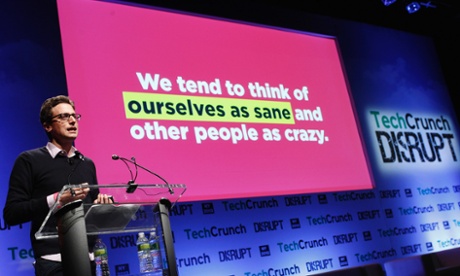
Venture capital funds exist to make risky bets. They’re intended to be a place where excess cash can find a better return than in a bank or bonds.
So how should we take the news that Andreessen Horowitz, set up by two of the figures behind the Netscape browser – that “web thing” which helped put newspapers in the calamitous state they’re mostly in – is investing $50m in Buzzfeed, the online publisher?
Chris Dixon, one of the Andreessen Horowitz partners, is joining Buzzfeed’s board, and says in a blog post that “many of today’s great media companies were built on top of emerging technologies”, citing Time (colour printing), CBS (radio) and Viacom (cable TV). Buzzfeed, he points out, started out with memes and lists and silly photos, which led upmarket rivals (ie almost everyone) to dismiss it, but is now moving into wider topic areas and “plans to invest significantly more in high-quality content in the coming years”.
So far, so disruptive: start at a disregarded low end, and then move upscale, elbowing aside established incumbents. But does that mean it’s game over for bigger players such as – gulp! – the Guardian or the New York Times or the Washington Post? Note that the latter has been owned by online whiz Jeff Bezos, founder of that little outfit Amazon, for a year now without any visible signs of dramatic change (no cats, no listicles, barely a meme in sight). Certainly nothing such as “14 Words That Have A Totally Different Meaning In Wolverhampton” (introducing, by-the-by, US-style initial headline capitals to puzzled Britons), which leads Buzzfeed’s UK site at the moment.
There’s a certain terror that wells up within newspaper executives as they try to contemplate the internet and its refusal to take any specific shape. Would any paper have launched Buzzfeed, even as a spinoff, in 2008? Obviously, none did. It’s a child of the internet, made of grabbing ideas and content from wherever best suits and then skewing the headline to make you want to click it. In that sense, it’s no different from any newspaper. Buzzfeed just knows it was born in a world of Facebook and Twitter, where social sharing trumps the front page. Buzzfeed isn’t on a BBC-style mission to explain. It’s very much on a mission to entertain.
The tougher question is, can Buzzfeed justify that investment. Or will it simply turn into one of venture capital’s supposed failures, becoming a fairly profitable site that just ticks over?
The answer is heavily reliant on the form and size of internet media advertising in future. But Buzzfeed is vulnerable to disruption too. Twitter account @SavedYouAClick delights in boiling its come-hither headlines into tweet-length summaries, which provoked an agonised plea from one Buzzfeed writer for it to stop. (@Savedyouaclick’s answer: no.)
Remember, too: Buzzfeed dates from the desktop era, pre-2009. A whole world is growing up on mobile with novel apps and different ways of sharing content. Buzzfeed is better placed than many of its media rivals to adapt, but there’s no monopoly on innovation or nimbleness. Andreessen Horowitz may have made an excellent bet but a bet is all that it remains.

